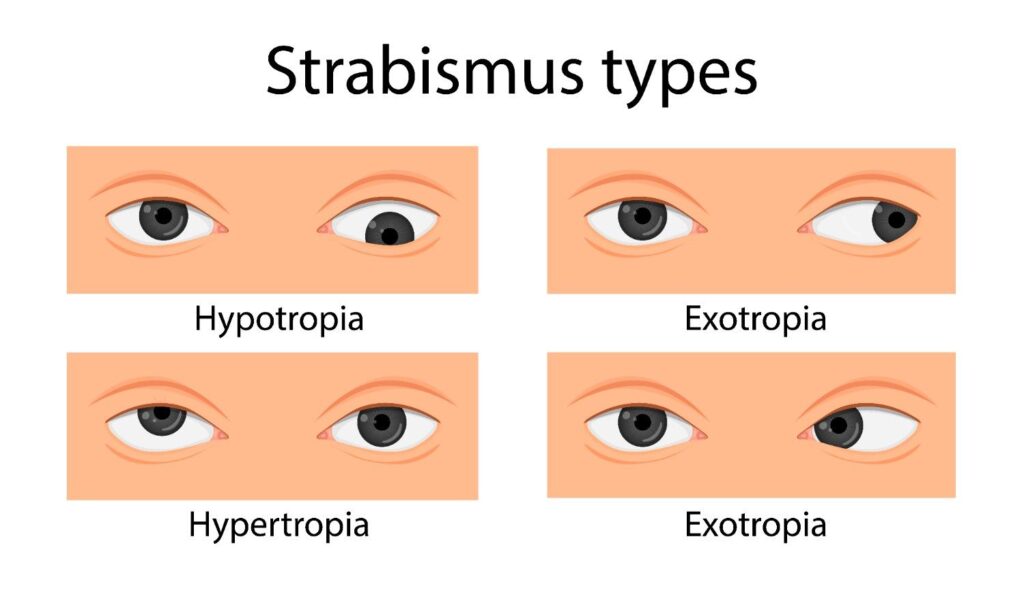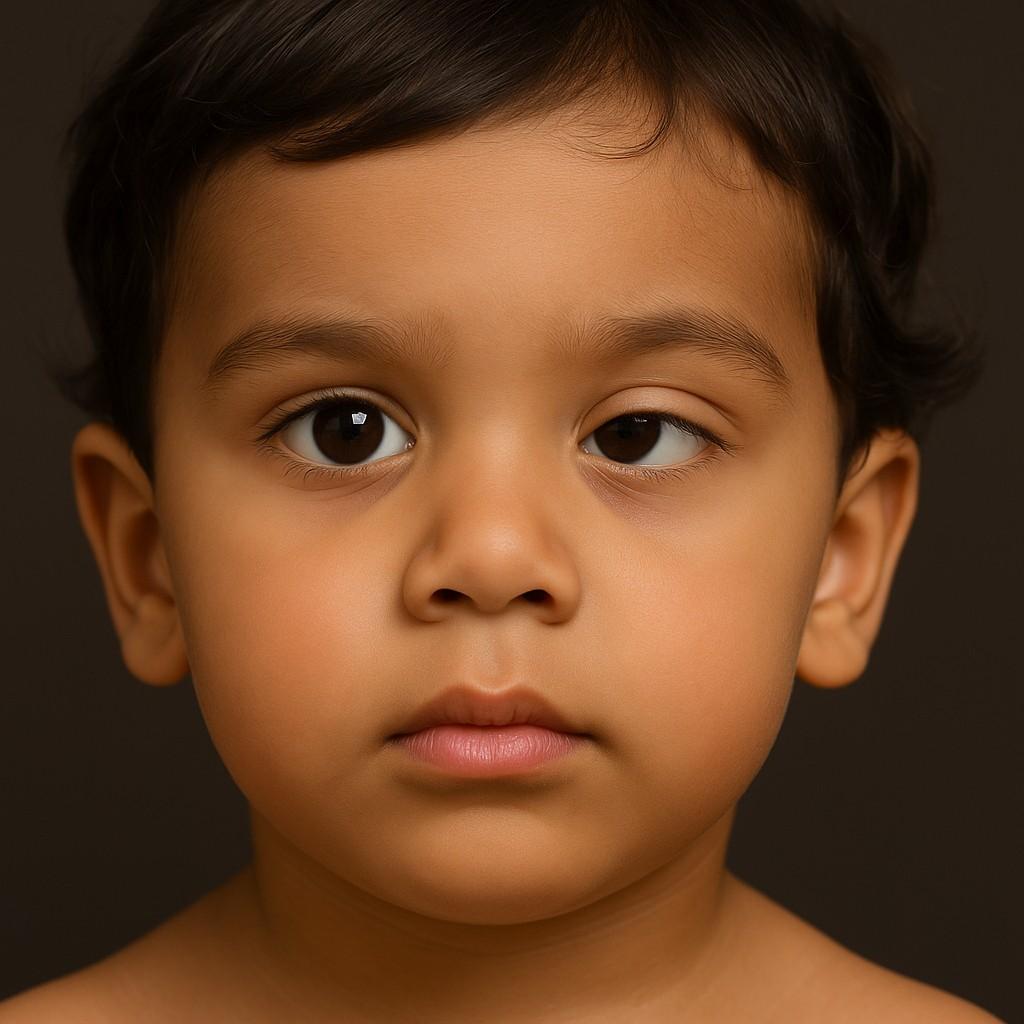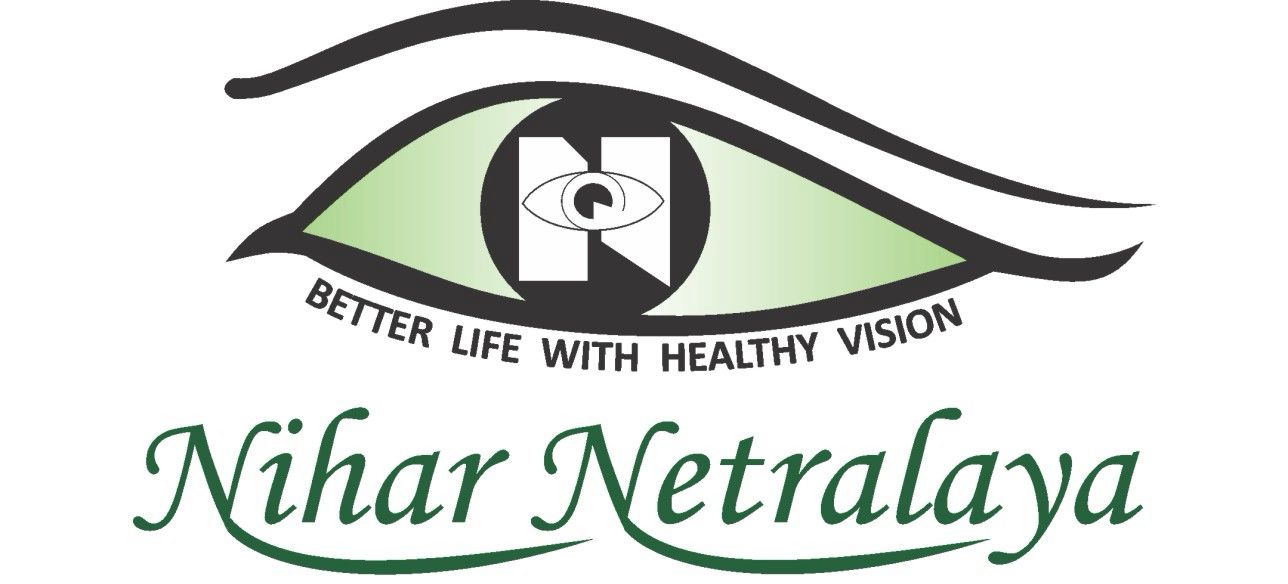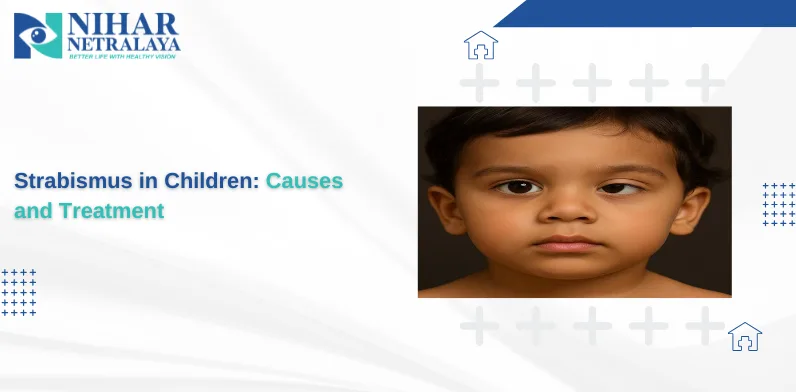Across India, among children under 12, about 14.8% had a squint. So squint eye treatment is one of the most common topics that parents discuss with us. When both the eyes do not look in the same direction, we call it a Squinted eye or Strabismus. It is common in young children. Today we will discuss why early squint eye care is very important and what steps will treat it successfully.
What is Squint?
In simple words, the eyes are misaligned. These do not focus on one object at the same time. When this does not happen, the brain receives two different images. This may confuse the child. The brain may even start ignoring the image from one eye. This can lead to amblyopia treatment India becoming necessary later.
Squint is different from a lazy eye. Lazy eyes are a result of ignoring vision from one side. Squint is the cause in many cases.
Types and Causes of Squint in Children

There are many types of squint in children. Some are constant, some appear only sometimes. Some squints appear soon after birth. Others develop later during childhood. A few common causes are:
- Family history of squint
- Refractive errors like farsightedness
- Weak eye muscles or nerves
- Birth problems such as prematurity
- Illnesses affecting the brain or eyes
Knowing the type and cause helps the doctor plan the right squint treatment in children.
Risk Factors & Who is More Prone

Children born early or with low birth weight are more likely to develop squint. A family history of eye squint in 3 year old or younger children also raises the chance.
Kids with poor vision in one eye may develop a squint. Neurological issues also play a role. Regular checkups reduce the risk of late detection.
Signs & Importance of Early Detection
Early detection of squint is vital. If ignored, the child may lose depth perception. Worse, the eyesight in one eye may weaken permanently. Parents should watch for signs like:
- Eyes not pointing in the same direction
- Frequent eye rubbing
- Tilting of the head
- Closing one eye in sunlight
- Complaints of double vision
Diagnosis & Tests Towards Squint Eye Treatment
An eye doctor checks alignment using a simple cover test. Vision is tested separately in each eye. In some cases, imaging or detailed tests are done. This step helps confirm if the problem is only squint or if there are other hidden issues. Diagnosis guides whether treatment of squint without surgery is possible.
Complications of Untreated Squint
- The commonest is amblyopia or lazy eye. The weaker eye is suppressed by the brain.
- Depth perception suffers. The child may face difficulty in games or later in jobs needing sharp vision.
- There is also a cosmetic effect or how the child looks; it can shake their confidence in social life.
Squint Eye Treatment Options
The options depend on the child’s age plus what kind of squint is there and the cause behind it. Following methods fall under treatment of squint without surgery, especially in small children, where chances of success are higher.
| Treatment Method | How It Works | Purpose / Benefit |
| Glasses | Corrects focusing problems caused by refractive error. | Often corrects squint without surgery in children. |
| Eye Patching | A patch is placed over the stronger eye to force the weaker eye to work. | Prevents and treats lazy eye (amblyopia). |
| Eye Drops | Used as an alternative to patching by blurring vision in the stronger eye. | Encourages the weaker eye to become active. |
| Exercises | Simple eye exercises prescribed by a doctor to strengthen eye muscles. | Improves muscle control and coordination. |
| Prisms | Specially designed lenses bend light to reduce double vision. | Helps eyes work together more comfortably. |
| Botulinum Toxin Injection | Relaxes tight eye muscles temporarily, allowing eyes to realign. | Used in select cases when muscles are too tight. |
Surgery is done by our Squint Specialist, only if the above methods fail to correct the squint.
When to Choose Squint Surgery vs. Non-Surgical Route
Pediatric squint surgery is done, when lenses, eye patches or exercises fail to correct the eye squint. The operation is done under general anesthesia. Keeps the child asleep and comfortable throughout. During surgery, the eye doctor tightens or loosens the eye muscles so both eyes focus on the same object.
Parents often ask about the right time. Well, we will say, bring the child, let us check his/her age and then we can decide. The best age is usually before kids’ school starts. This ensures proper visual development.
If the squint is small or due to glasses, surgery may not be required. Our eyes experts will guide based on the child’s response.
Squint in Adults
Squint is not limited to kids. Some adults never get treated in childhood. Others develop squints due to injury or illness. At Nihar Netralaya we even treat the adults. Squint eye treatment in adults may include surgery, prisms or therapy. Adults may also seek care for cosmetic reasons. Correction improves both function and confidence.
Prevention & Home Care Tips
Not all squints can be prevented. Awareness and timely checks help. But some steps reduce risk:
- Get eyes tested at childbirth, at age 3 and also before school.
- Limit the screen time for children.
- Encourage outdoor play.
- If advised, follow squint eye exercises for kids regularly.
Squint Surgery Cost & Accessibility in India
In hospital-based studies across India, among children under 12, about 14.8% had strabismus (squint). But do not worry, it is treatable in most of the cases. Parents often worry about the cost of squint correction surgery. The squint surgery cost India depends on hospital type, city, and complexity. On average, it may range between ₹20,000 to ₹80,000 per eye. Many government hospitals offer lower charges. Insurance sometimes covers it, especially for children. Knowing this helps families plan better.
CTA
So, if your child shows signs of squint, don’t delay. Nihar Netralaya offers the best suitable strabismus treatment India has. We are known on record that most children gained normal vision and straight eyes. Book your consultation today!
FAQs
Yes, in many cases. Glasses, patching, and exercises may work.
Usually before 5 years. Early surgery helps both – the eyesight and looks.
Rarely, but it can; that’s why till a certain time, regular follow-up is important.
No, but it can create eye strain or double vision.


